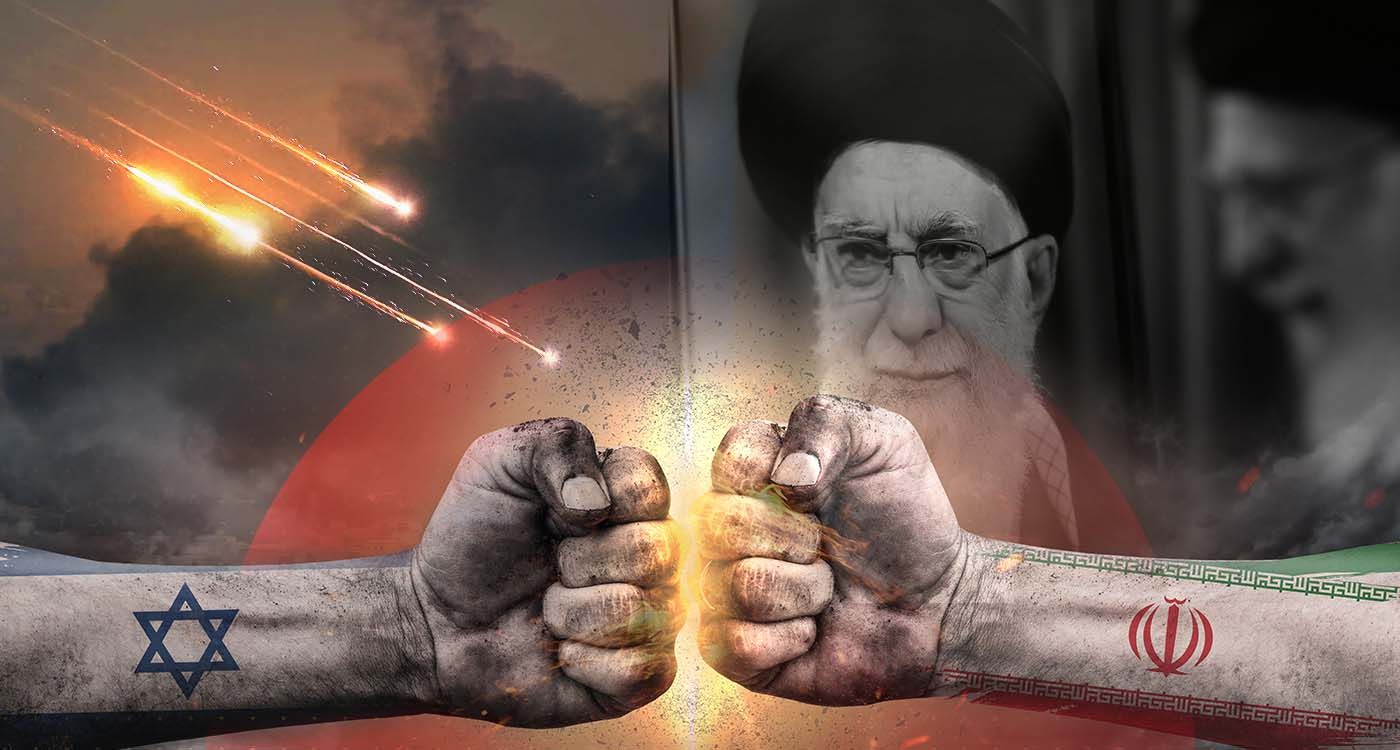- Home
- Middle East
- Yet Another ‘Divine Victory’

©This is Beirut
No matter the outcome of the war between Iran and Israel, Tehran will claim victory. Iran’s Supreme Leader Ali Khamenei has already cited the Quranic verse “a victory from God and an imminent conquest.” Middle East observers have seen this movie many times, and it always ends the same: with its military might, Israel prevails—while a battered Iran and its allies flash the sign of victory atop the rubble they once called home.
Military victory never happens by sheer coincidence. It is merely the tip of the iceberg—an outcome built on success in other fields, including liberty, good governance, the rule of law, economic growth, and scientific advancement. Only when a nation excels beyond the battlefield does it develop true military strength. Israel is one such miracle in a region otherwise riddled with failing states.
Military power does not necessarily depend on size or resources. If it did, Russia—the planet’s largest country with vast natural resources—would have swept to victory in its war against the much smaller, less resource-rich Ukraine.
The Russian military performance in Ukraine, however, has been nothing short of an embarrassment for a country that calls itself a major power.
Similarly, Iran is five times the size of Israel, with a population ten times larger. Yet the Israeli military has been running circles around its Iranian counterpart.
Military underperformance is also a product of corruption, nepotism, and propaganda. Be it Iraq under Saddam, Hamas under Yehia Sinwar, Hezbollah under Hassan Nasrallah, or Iran under Ali Khamenei, the levels of delusion—often fueled by unrealistic propaganda—have been high. Saddam, Sinwar, Nasrallah, and now seemingly Khamenei all came to believe the false claims of imagined prowess they fed to their people. When battle time comes, their military machines crack, and these chiefs are transformed—overnight—from commanders atop defined hierarchies to fugitives fleeing death from one bunker to another.
On the rare occasions these con artists are given a second chance—like Saddam after 1991 or Nasrallah after 2006—they never assess their past performance to correct it. On the contrary, they continue doing more of the same, spinning failure and depicting it as success.
After suffering a humiliating defeat and a quick rout in Kuwait, Saddam declared his victory in the “mother of all battles.” Similarly, from a bunker at an undisclosed location in 2006, Nasrallah told a flattened Lebanon that he had achieved a “divine victory.” In round two, both Saddam and Nasrallah were eliminated, and their military organizations crushed.
Khamenei appears bound to repeat the mistakes of Saddam and Nasrallah: bombastic speeches, unrealistic promises of crushing Israel, and a military machine decimated by the Jewish state along with its top commanders.
Khamenei is even replicating Saddam and Nasrallah’s military playbook. While Israel tore them apart without pause, all Saddam and Nasrallah could do was lob missiles at the Jewish state and deliver fiery speeches from their bunkers.
After decades of hyping his avionics and space program, Khamenei turned out to be little more than Saddam with longer-range missiles. While Iran acts as if copying Soviet missile technology is a groundbreaking achievement, Saddam had done it long before—and with the same result: his death, the destruction of his country, and the agony of his population.
Divine Victory is not a military one. It is, first and foremost, a victory in knowledge that brings with it economic prosperity and a higher standard of living. Germany lost both world wars but has since been one of the leading global powers, thanks to its scientific advancements and a powerful economic performance. So have been nations like Japan and South Korea.
No one has any doubt that these demilitarized nations can turn themselves, overnight, into mighty military powers. But once nations taste the sweetness of economic prosperity, they abandon empty talk of missiles, victories, and conquests—and fight only when their existence is truly at stake. And that’s exactly what Israel has been doing, tapping into its advancements to build up its military, then impressively crushing its enemies.
And while the Israeli victories over Hamas, Hezbollah, and – so far – Iran, have been almost miraculous, the Israeli military machine has avoided spin and stuck to facts, learning from past mistakes, such as its subpar performance against Hezbollah in 2006, to improve its fighting – almost to perfection – in 2024.
Saddam, Hamas, Hezbollah, and now Khamenei never learned. Each branded defeat as a 'divine victory' and braced for the next round of humiliation—if they lived long enough to face it.
Read more




Comments